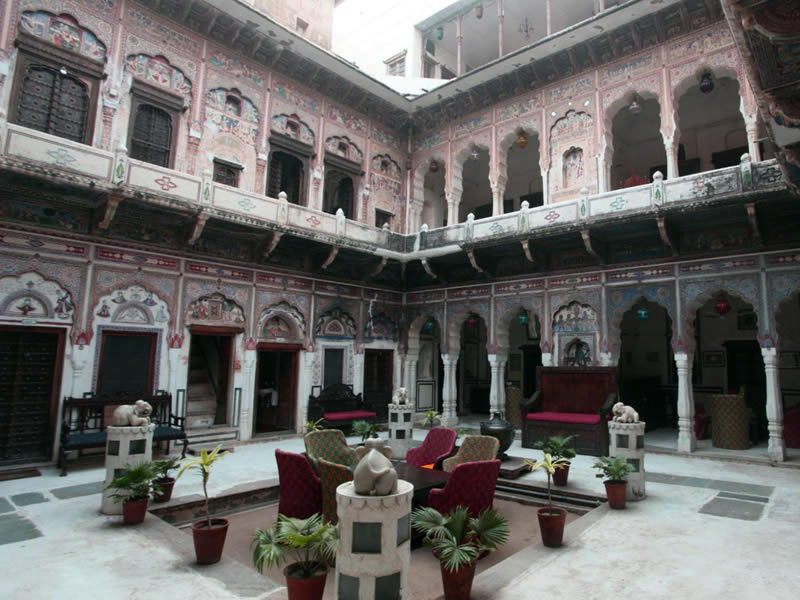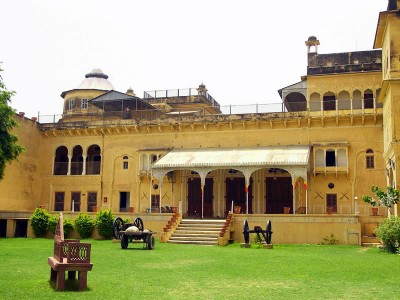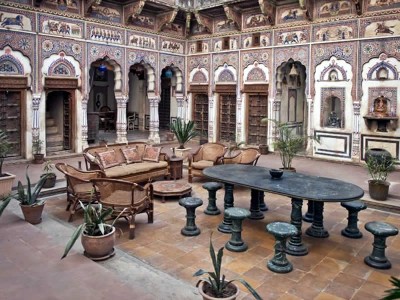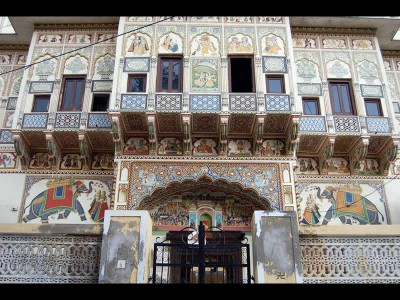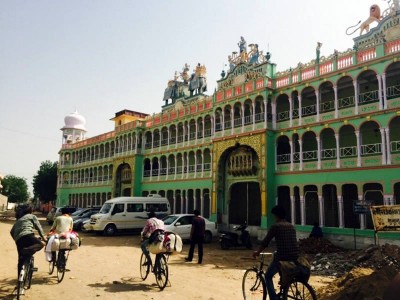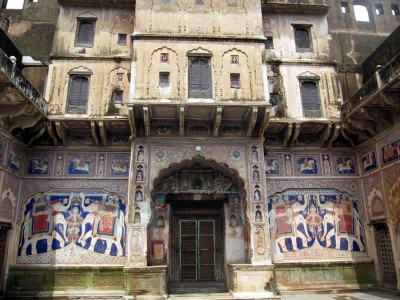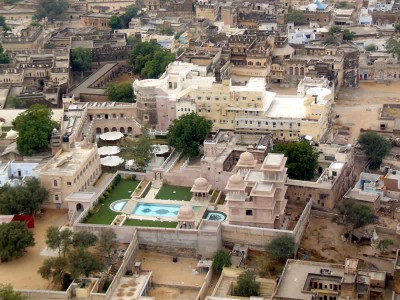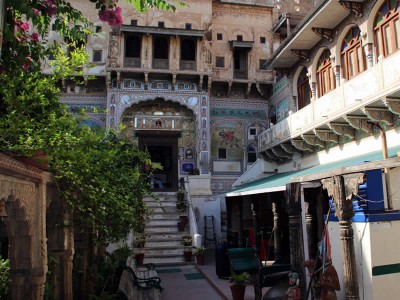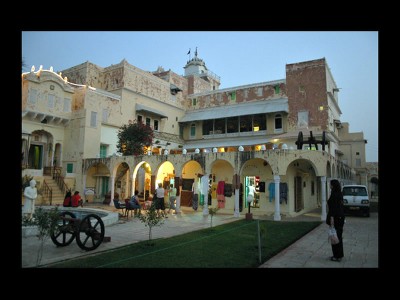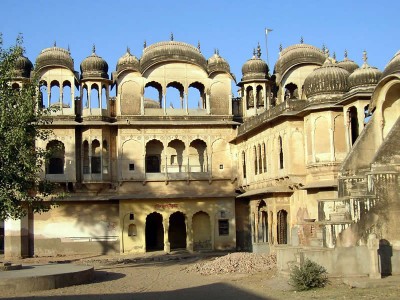Shekhawati Travel and Tourism Guide
Shekhawati lies in a triangle between Jaipur, Bikaner and Delhi and the entire region is considered an open air museum for its beautiful frescoes. Since the 15th century when Rao Shekha opposed the rule of the Amber kings, the region remained a semi-autonomous collection of thikanas (feudal states). In the middle of the 19th century, the inhabitants of Shekhawati began to patronise the art of fresco painting. These paintings depict local legends, animals, portraits, hunting and wrestling scenes. The roads of Shekhawati, now like any other, were once caravan routes where the productions of India, Kashmir, and China, were interchanged for those of Europe, Africa, Persia and Arabia. Even though the trade rivalry with the British had pushed the Marwaris from Shekhawati to the ports, they never ceased to think of Shekhawati as their own land and this explains the enormous structures raised in nostalgia.The merchants built for the community: wells and reservoirs, dharamshalas (pilgrim resthouses), schools, gaushalas (shelter for cows), and temples. In the memory of their ancestors, they constructed cenotaphs, and for their families large havelis (mansions).



